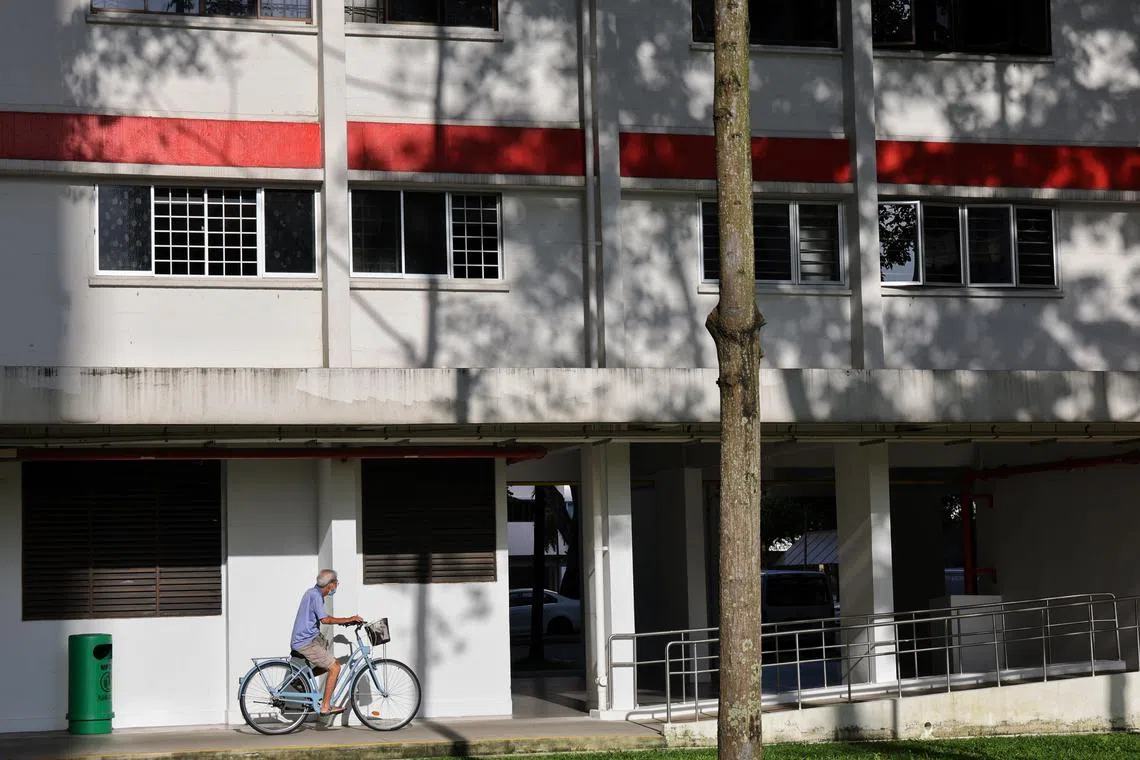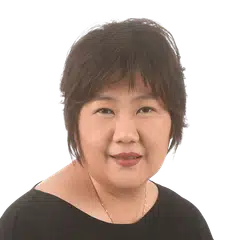Homes for the vulnerable, such as abused kids and destitute seniors, to be licensed under new Act
Sign up now: Get ST's newsletters delivered to your inbox

MSF will license homes across six categories that provide long-term residential care to “highly vulnerable” residents.
ST PHOTO: JASON QUAH
Follow topic:
SINGAPORE – Sixty-one social residential homes housing nearly 4,000 vulnerable residents will have to follow a new licensing regime aimed at strengthening safeguards and raising the quality of care.
The residents include abused children, adults with disabilities and destitute seniors.
Under the Social Residential Homes Bill that was passed in Parliament on April 8, such homes have to abide by a licensing framework that provides clear and common standards of care for the different types of homes.
The new Act is expected to take effect in 2026.
For a start, the Ministry of Social and Family Development (MSF) will license homes in six categories that provide long-term residential care to “highly vulnerable” residents.
These are children’s homes, children’s disability homes, sheltered homes, welfare homes, adult disability homes and adult disability hostels.
Children’s homes, such as the Chen Su Lan Methodist Home and Melrose Home, house children in need of care and protection, such as those who are abused, and youth offenders.
Sheltered homes house low-income seniors who are independent and have no accommodation, while welfare homes house destitute seniors who cannot live independently due to physical or mental illness.
To help the homes, MSF and the National Council of Social Service will provide a $33 million Transition Support Package. About 2,000 staff work in these homes now.
The homes can use funds to train their staff in areas such as the management of violent behaviours. The package will also help to defray the costs of meeting other requirements under the Act, such as the installation of CCTV cameras.
For example, it would be mandatory to install CCTV cameras in specified areas in the home to ensure the safety and security of staff and residents. This is currently not mandatory.
MSF said it engaged the home operators and their board members, as well as held a public consultation, in drafting the new Act.
In Parliament on April 8, Senior Parliamentary Secretary for Social and Family Development Eric Chua said: “The Social Residential Homes Bill is a proactive step taken by MSF to codify the good progress that has been made in raising the quality of care provided by the sector over the years.
“To be clear, we are not coming from a position of deficit.”
He added that incidents of a serious nature, such as abuse, are rare, and that the homes here have good standards.
Currently, only children’s homes, children’s disability homes and sheltered homes are licensed. So only slightly more than half, or 35, of the 61 homes in all categories are licensed now.
For homes that are not licensed but funded by MSF, the ministry manages them through funding agreements under which the home has to meet key performance indicators and a prescribed set of requirements.
Under the new Act, clear standards are spelt out for these homes and a code of practice will detail the regulatory requirements relating to the home’s governance and management of residents, among other areas.
A breach of the code of practice may lead to regulatory action such as revocation or suspension of the home’s licence. For example, those who operate a home without a licence under the new Act will face a fine of up to $100,000 or up to two years in jail, or both.
There will also be stronger safeguards to ensure residents’ safety and well-being.
For example, the use of reasonable force or mechanical restraints, such as cloth bands and leg braces, are not allowed unless under specified circumstances, Mr Chua said. This is to deter any potential abuse.
For example, a few adult disability homes use cloth bands and similar restraints to ensure the residents’ safety, such as preventing them from falling from wheelchairs, an MSF spokesman told The Straits Times.
Staff who use excessive force or unauthorised restraints may face regulatory action under the new Act, including losing approval to work in the home.
In response to Mr Melvin Yong (Radin Mas), who asked about the number of staff in such homes who were investigated for the excessive use of force, Mr Chua said the MSF received an average of six reports a year between 2020 and 2024 about the abuse of residents, some involving excessive use of force.
He said some of these complaints were not substantiated, but for those that were, staff were taken to task.
He added: “MSF adopts a zero-tolerance approach towards the use of excessive force on our residents and we will thoroughly investigate these allegations.”
The new Act also contains an enforcement framework to deter errant operators.
For example, the Act will give MSF powers, through a step-in order, to temporarily take over a failing operator’s home to ensure the continuity of care for residents. Currently, MSF has no legislative power to do so.
However, MSF said such step-in orders would only be a measure of the last resort if the issues cannot be resolved through regulatory and other actions.
Ms Ang Chiew Geok, group head of the Touch Special Needs Group at Touch Community Services (TCS), said that operators of adult disability homes and hostels have to follow standards of care for such homes set by MSF and meet key performance indicators – even though they are currently not licensed until the new Act kicks in.
TCS runs Touch Ubi Hostel, where adults with intellectual and other disabilities live in a communal setting and learn to live independently, among other skills.
The new Act is similar to MSF’s standards of care, but is more detailed and covers more areas such as the use of CCTV cameras and mechanical restraints, Ms Ang added.
Touch Ubi Hostel and the four homes for adults with disabilities run by Thye Hua Kwan Moral Charities (THKMC) say they do not use any form of physical restraint on their residents. One of the THKMC homes, THK Home@Eunos, also houses children with intellectual disabilities.
THKMC chief executive officer Jason Lee said the new licensing regime will set clear and consistent standards for homes, and boosts care standards by introducing clearer regulatory guidelines on residents’ safety, staff training and other operational requirements.
He added: “This structured oversight will ensure that our homes uphold best practices in areas such as medical care, rehabilitation and social integration. It also strengthens protection for our residents, ensuring they receive care with dignity and respect.”
Theresa Tan is senior social affairs correspondent at The Straits Times. She covers issues that affect families, youth and vulnerable groups.


